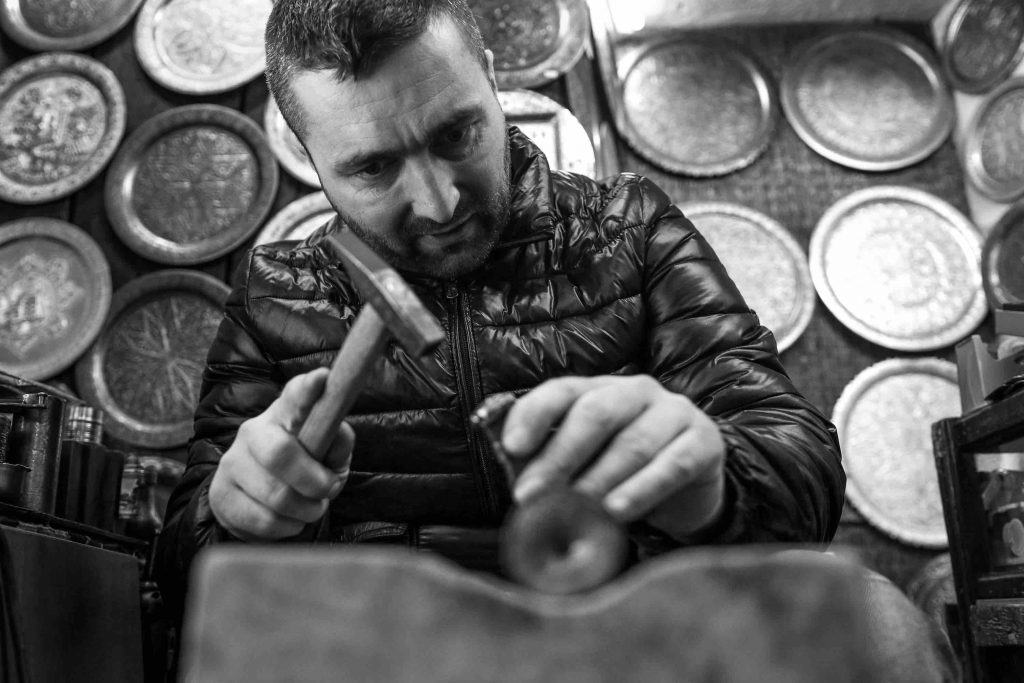
In Sarajevo’s Baščaršija (Old Town), some craft shops offer tourists unusual souvenirs – items from the war that could have served as reminders of a bloody and turbulent past in Bosnia and Herzegovina but have instead been transformed into something beautiful.
In Sarajevo’s Baščaršija (Old Town), some craft shops offer tourists unusual souvenirs – items from the war that could have served as reminders of a bloody and turbulent past in Bosnia and Herzegovina but have instead been transformed into something beautiful.
Photos and text: Armin Durgut
Kenan Hidić collected fragments of weapons and bullets from the war and has turned them into a successful and profitable business venture. He transforms bullet casings into ballpoint pens and empty grenades and anti-aircraft shells into objects for everyday use.
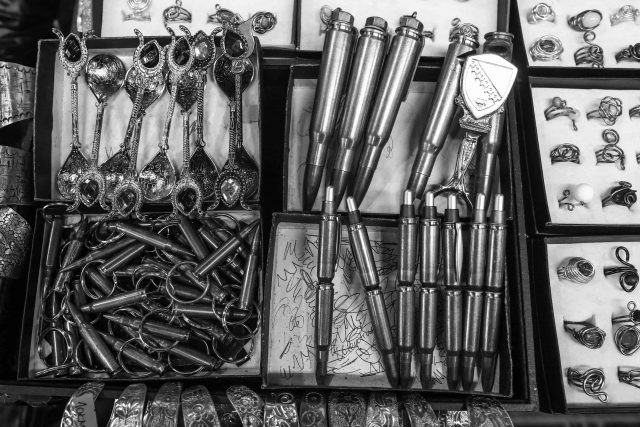
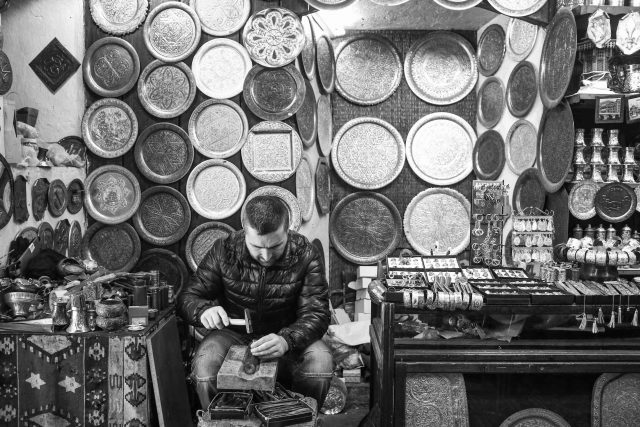
At the end of the war in the mid-1990s, many areas were riddled with thousands of scattered rockets, grenades, and shell casings. Those were the sad reminders of the war that was fought in this country until Kenan Hidić and a few other souvenir shop owners began collecting them and turning them into decorative items that people would be willing to buy.
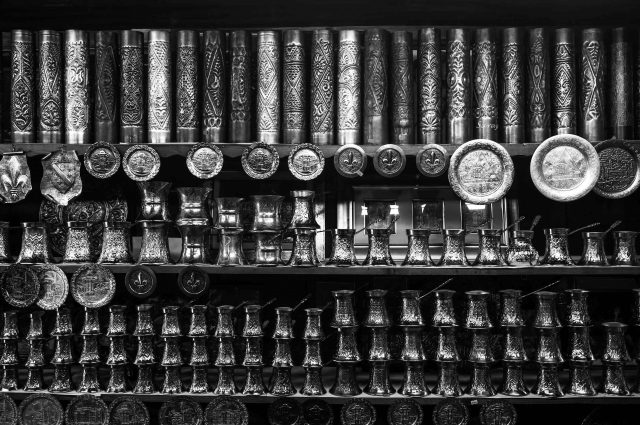
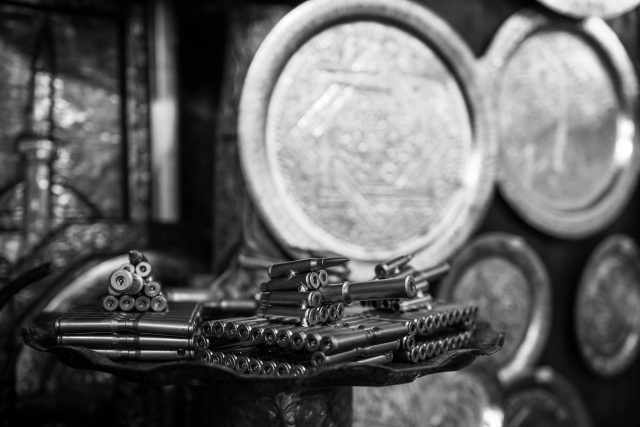
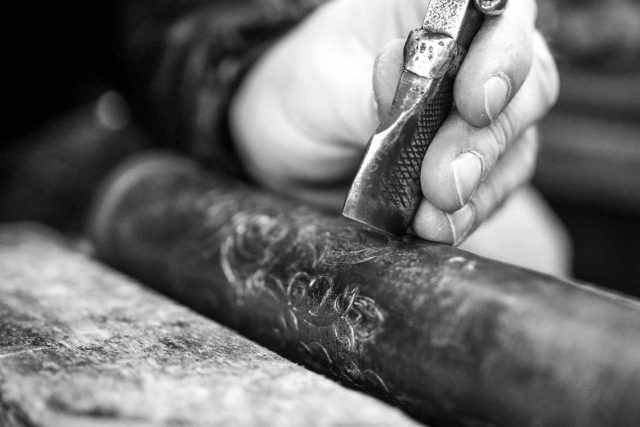
Through art, Hidić turns dark memories of war into something valuable and beautiful.
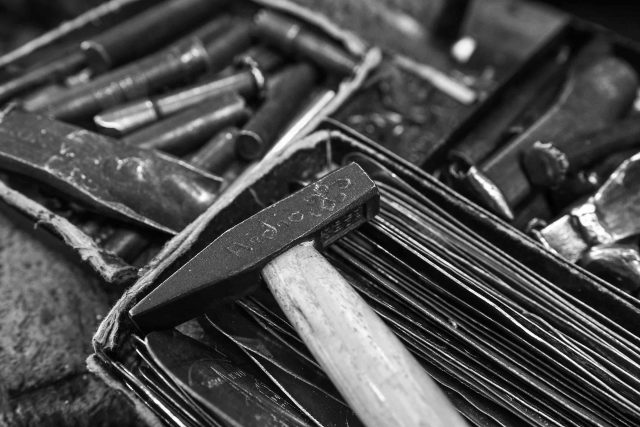
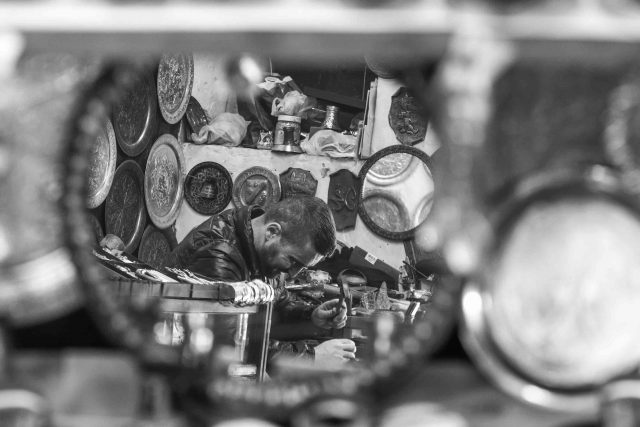
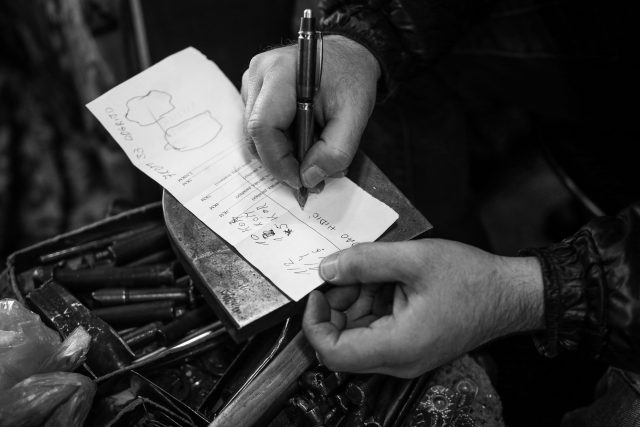
“So I work with these leftover shells from the war and I decorate them like this. I put some patterns, some flowers inside, and when it’s done, it becomes a flowerpot. You know, it was once used to kill, but now it’s a flowerpot. Something beautiful has been made from something horrible. If only God had made a world without war… But since the remnants exist, it’s better to use them in some nice, positive way,” says Kenan.
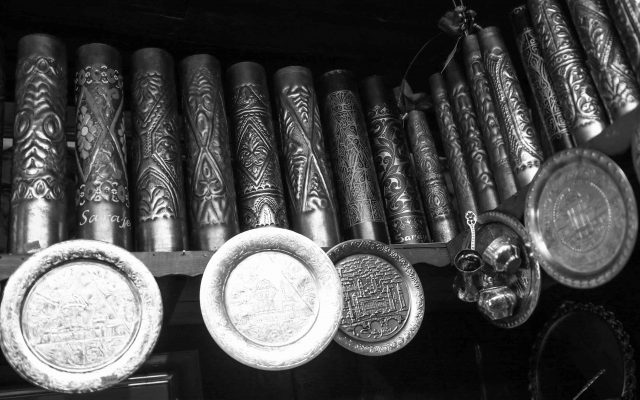
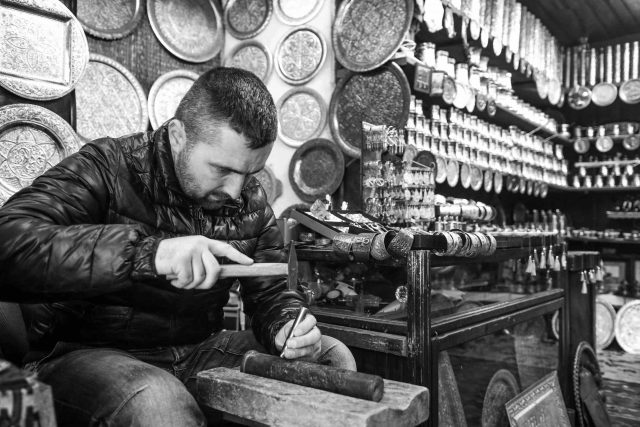
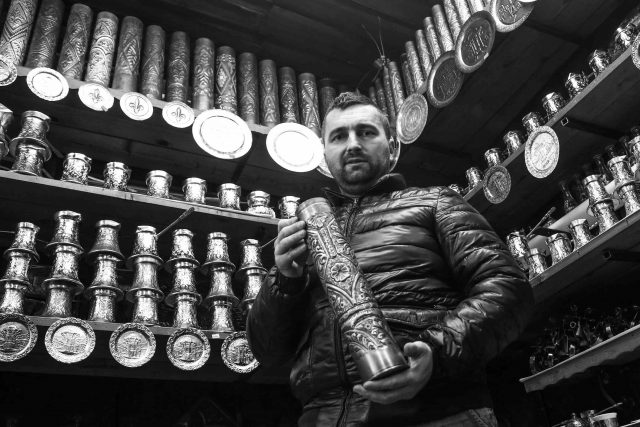
___
Armin, a Balkan Diskurs-trained youth correspondent, was named as a finalist for the 2017 Balkan Photo Award.
This publication has been selected as part of the 2018 Srđan Aleksić Youth Competition, a regional storytelling competition that challenges youth to actively engage with their own communities to discover, document, and share stories of moral courage, interethnic cooperation, and positive social change. The competition is a primary component of the Post-Conflict Research Center’s award-winning Ordinary Heroes Peacebuilding Program, which utilizes international stories of rescuer behavior and moral courage to promote interethnic understanding and peace among the citizens of the Western Balkans. The final winners of the 2018 competition will be announced in the coming months.
Support for this program has been graciously provided by the National Endowment for Democracy (NED).






